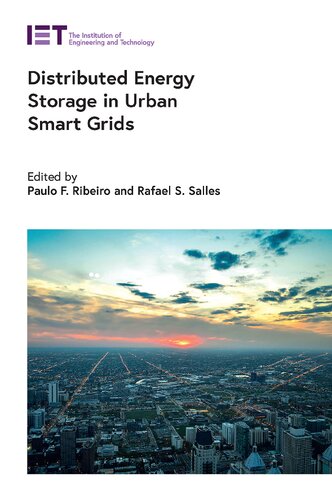

Most ebook files are in PDF format, so you can easily read them using various software such as Foxit Reader or directly on the Google Chrome browser.
Some ebook files are released by publishers in other formats such as .awz, .mobi, .epub, .fb2, etc. You may need to install specific software to read these formats on mobile/PC, such as Calibre.
Please read the tutorial at this link: https://ebookbell.com/faq
We offer FREE conversion to the popular formats you request; however, this may take some time. Therefore, right after payment, please email us, and we will try to provide the service as quickly as possible.
For some exceptional file formats or broken links (if any), please refrain from opening any disputes. Instead, email us first, and we will try to assist within a maximum of 6 hours.
EbookBell Team

4.7
46 reviewsRenewable energy is key to stopping climate change, however, the intermittent nature of most forms of renewable energy generation poses a challenge. Energy storage is therefore a focus of research and development, particularly for urban areas with their limited space and high population density, which results in massive demand for both small distributed and utility-scale generation. Such locations require thorough integration of storage, with the urban energy system treated as a whole, and sufficient planning, sizing and siting, and upgrades to the existing power grid hardware.
This book conveys the technology for energy storage for urban areas, treating the urban power grid as a system, and providing an integrated picture. After an introduction to the energy transition and urban grids, chapters cover experiences and principles regarding distributed energy and storage, grid resilience, EV usage and charging infrastructure, standards and grid codes, monitoring and power quality, hosting capacity, intelligent electricity markets, and integrated operation.
Written by international experts in the field, Distributed Energy Storage in Urban Smart Grids offers valuable insights to researchers and professionals from academic institutions, grid operators and the storage technology industry.